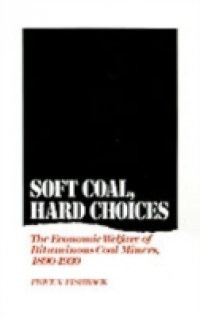While most studies of labor in the coal industry focus on the struggle to organize unions, this work offers a more diverse and quantitative examination of the labor market. It regards the economic lives of the bituminous coal miners in the early twentieth century. Fishback's analytic framework encompasses competition among employers for labor, the legal environment, institutional development in response to transactions costs as well as the impact of labor unions on the coal industry. Utilizing economic theory and statistics, Fishback reveals the models hidden in the descriptions of events, and then tests their internal consistency as well as the hypotheses they generate.







 7.5 (4)
7.5 (4) 









